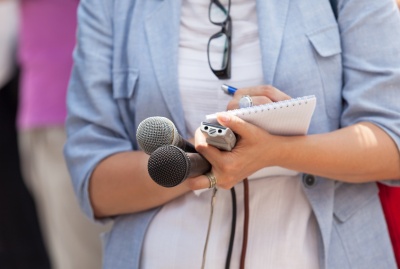The Society of Professional Journalists (SPJ) Code of Ethics is a statement that addresses the principles that reporters and journalists should abide by in order to remain ethical. It clearly states that journalists must remain as ethical as possible when it comes to reporting and sharing information. In order to do that, they must avoid conflicts of interest, both real and perceived. However, determining what constitutes a conflict of interest is can be challenging. In this article, we’ll investigate conflicts of interest in journalism.
Conflict of Interest Defined
A journalist who is conducting an interview with a town’s councilmember tries to determine if asking the councilmember’s son on a date is appropriate.
An editor of a local newspaper is wondering if running for town supervisor would be alright.
Do the above-mentioned situations count as a conflict of interest? It can be hard to tell, as the SPJs Code of Ethics doesn’t really go into too much detail about what is actually considered a conflict of interest. The Code of Ethics does state that journalists should avoid conflicts of interest, whether they are real or perceived, and that they should always disclose conflicts that are unavoidable. However, this code does not highlight additional details regarding what would make a conflict unavoidable.
So, what exactly is a conflict of interest? Essentially, it is a term that is used to describe when a member of the media, such as a journalist, has an obligation or an interest that is essentially at odds with his or her duties with an employer, a medial channel, and the audience.
Examples of Conflicts of Interest
There are several ways that conflicts of interest amongst journalists and/or media outlets and consumers of the media can arise. Some common examples of conflict of interest include:
- Reporting about friends or family members
- Accepting perks, such as trips or gifts that have been paid for by an organization, such as a government agency.
- Accepting monetary compensation from an organization.
These examples are considered conflicts of interest because they could potentially prevent a journalist from reporting accurate and truthful information. The goal of the media is to provide the public with the real news, as it actually occurs. Conflicts of interest could sway a journalist and convince him or her to alter the truth.
Principles of Ethical Journalism
The goal of journalism is to be as ethical as possible so that information presented to the public is factual and not altered by personal opinions. The Society of Professional Journalists has identified four basic principles that serve as the foundation of ethical journalism. These principles include:
- Seeking and Reporting the Truth. In order for journalism to be ethical, it must be as accurate and as fair as possible. To achieve this, journalists should be honest when it comes to gathering interpreting and reporting the information that they share.
- Harm Should be Minimized. Ethical journalism also calls for treating subjects, sources of information, co-workers and members of the public with respect. This means that journalists should not set out to intentionally harm any person, especially if the intent is for personal gains, or to benefit someone else, such as an organization. It also means that journalists should treat those that they work with – whoever those individuals may be – with compassion. For example, they should exercise increased sensitivity when interviewing juveniles.
- Act on their Own Accord. The primary goal of ethical journalism is to serve the public. This means that while journalists should attend to the needs of their employers, they should also act on their own accord. In other words, they should always avoid conflicts of interest and disclose any conflicts that may be deemed unavoidable. As highlighted above, conflicts of interest could impede ethical journalism. If a conflict of interest does exist, a journalist is more likely to interject their own point-of-view into the information that he or she is presenting, which could prevent the public from learning the real facts.
- Have Accountability and be Transparent. Journalists should take responsibility for their work. They should also explain the decisions that they have made to the public.
Avoiding Conflicts of Interest
How can a journalist avoid conflicts of interest? It can be difficult to determine what is deemed conflicting, as the SPJ does not really elaborate what is considered a conflict.
In order to avoid conflicts from arising, journalists can ask themselves the following questions to help them determine if a story could potentially lead to a conflict – either real or perceived.
- Will the actions that a journalist makes in private with a source create the appearance that an unprofessional connection exists between the two? For example, how will the public react when they learn that a romance or a friendship exists between a journalist and his or her source of information?
- Is it acceptable to accept a gift that has been offered from a source on a story? Though the SPJ warns against accepting any gifts, they can be accepted without impacting the ethics of reporting; however, the gift should not intend to serve as a motivation for the journalist to alter the story and prevent sharing the facts.
- Does a system exist that allows journalists to point out conflicts of interest to make it possible for managers to act on them?
Other Tips for Avoiding Conflicts of Interest
Avoiding a conflict of interest does necessitate a conscious effort on behalf of a journalist. Here’s a look at some additional ways that reporters can avoid getting into conflicts:
- Never donate money to activist or political groups
- Stray away from gifts and freebies from sources of information
- Keep out of political activity
- Avoid developing relationships with sources
